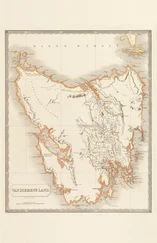Joshua Giddings - The Exiles of Florida
Здесь есть возможность читать онлайн «Joshua Giddings - The Exiles of Florida» — ознакомительный отрывок электронной книги совершенно бесплатно, а после прочтения отрывка купить полную версию. В некоторых случаях можно слушать аудио, скачать через торрент в формате fb2 и присутствует краткое содержание. Жанр: foreign_antique, foreign_prose, на английском языке. Описание произведения, (предисловие) а так же отзывы посетителей доступны на портале библиотеки ЛибКат.
- Название:The Exiles of Florida
- Автор:
- Жанр:
- Год:неизвестен
- ISBN:нет данных
- Рейтинг книги:5 / 5. Голосов: 1
-
Избранное:Добавить в избранное
- Отзывы:
-
Ваша оценка:
- 100
- 1
- 2
- 3
- 4
- 5
The Exiles of Florida: краткое содержание, описание и аннотация
Предлагаем к чтению аннотацию, описание, краткое содержание или предисловие (зависит от того, что написал сам автор книги «The Exiles of Florida»). Если вы не нашли необходимую информацию о книге — напишите в комментариях, мы постараемся отыскать её.
The Exiles of Florida — читать онлайн ознакомительный отрывок
Ниже представлен текст книги, разбитый по страницам. Система сохранения места последней прочитанной страницы, позволяет с удобством читать онлайн бесплатно книгу «The Exiles of Florida», без необходимости каждый раз заново искать на чём Вы остановились. Поставьте закладку, и сможете в любой момент перейти на страницу, на которой закончили чтение.
Интервал:
Закладка:
A difficulty arose among the Creek Indians, which eventually becoming irreconcilable, a chief named Seacoffee, with a large number of followers, left that tribe – at that time residing within the present limits of Georgia and Alabama – and continuing their journey south entered the Territory of Florida, and, under the Spanish colonial policy, were incorporated with the Spanish population, entitled to lands wherever they could find them unoccupied, and to the protection of Spanish laws. 3 3 Vide Schoolcraft’s History of Indian Tribes.
From the year 1750, Seacoffee and his followers rejected all Creek authority, refused to be represented in Creek councils, held themselves independent of Creek laws, elected their own chiefs, and in all respects became a separate Tribe, embracing the Mickasukies, with whom they united. They settled in the vicinity of the Exiles, associated with them, and a mutual sympathy and respect existing, some of their people intermarried, thereby strengthening the ties of friendship, and the Indians having fled from oppression and taken refuge under Spanish laws, were also called Seminoles, or “runaways.”
After Georgia became a Slaveholding Colony, we are led to believe the practice of slaves leaving their masters, which existed in South Carolina, became frequent in Georgia. But we have no definite information on this subject until about the commencement of the Revolutionary War (1775), when the Council of Safety for that colony sent to Congress a communication setting forth, that a large force of Continental troops was necessary to prevent their slaves from deserting their masters . 4 4 Vide American Archives, Vol. I. Fifth Series: 1852.
It was about the first communication sent to Congress after it met, in 1776, and shows that her people then sought to make the nation bear the burthens of their slavery, by furnishing a military force sufficient to hold her bondmen in fear; and if she adheres to that policy now, it merely illustrates the consistency of her people in relying upon the freemen of the North to uphold her system of oppression.
General Lee, commanding the military forces in that colony, called the particular attention of Congress to the fact, that slaves belonging to the planters, fled from servitude and sought freedom among the “ Exiles of Florida .”
There also yet remained in Georgia many descendants of those who, at the establishment of that colony and since that time, had opposed the institution of Slavery. These people desired to testify their abhorrence of human servitude. They assembled in large numbers, in the district of Darien, and publicly resolved as follows: “To show the world that we are not influenced by any contracted or interested motives, but by a general philanthropy for all mankind, of whatever climate, language or complexion , we hereby declare our disapprobation and abhorrence of slavery in America.” The public avowal of these doctrines, naturally encouraged slaves to seek their freedom by such means as they possessed. One day’s travel would place some of them among friends, and in the enjoyment of liberty; and they were sure to be kindly received and respectfully treated, soon as they could reach their brethren in Florida. Of course many availed themselves of this opportunity to escape from service.
The Exiles remained in the undisturbed enjoyment of liberty during the war of the Revolution. The Creeks were a powerful and warlike people, whose friendship was courted during the sanguinary struggle that secured our National Independence. During those turbulent times it would not have been prudent for a master to pursue his slave through the Creek country, or to have brought him back to Georgia if once arrested.
The Exiles being thus free from annoyance, cultivated the friendship of their savage neighbors; rendered themselves useful to the Indians, both as laborers and in council. They also manifested much judgment in the selection of their lands for cultivation – locating their principal settlements on the rich bottoms lying along the Appalachicola and the Suwanee Rivers. Here they opened plantations, and many of them became wealthy in flocks and herds.
Immediately after the close of the war, the authorities of Georgia are said to have entered into a treaty with the Creek Indians, at Augusta, in which it is alleged that the Creeks agreed to grant to that State a large tract of land, and to restore such slaves as were then resident among the Creeks. But we find no copy of this treaty in print, or in manuscript. As early as 1789, only six years after it was said to have been negotiated, Hugh Knox, Secretary of War, in a communication to Congress, declared that no copy of this treaty was then in the possession of Congress; and it has not been since reprinted. Indeed, it is believed never to have been printed.
The difficulty between Georgia and the Creeks becoming more serious, the aid of the Continental Congress was invoked, for the purpose of securing that State in the enjoyment of what her people declared to be their rights. Congress appointed three commissioners to examine the existing causes of difficulty, and if possible to negotiate a treaty with the Creeks that should secure justice to all the people of the United States.
Communities, like individuals, often exhibit in early life those characteristics which distinguish their mature age, and become ruling passions when senility marks the downhill of life. Thus Georgia, in her very infancy, exhibited that desire for controlling our National Government which subsequently marked her manhood. Possessing no power under the Constitution to enter into any treaty except by consent of Congress, her Executive appointed three Commissioners to attend and supervise the action of those appointed by the Federal Legislature. The time and place for holding the treaty had been arranged with the Indians by the Governor of Georgia. At Galphinton, 5 5 This was the residence of George Galphin, an Indian trader, who, in 1773, aided in obtaining a treaty by which the Creek Indians ceded a large tract of land to the British Government. Georgia succeeded the British Government in its title to these lands, by the treaty of peace in 1783. Some fifty years afterwards, the descendants of Galphin petitioned the State of Georgia for compensation, on account of the services rendered by Galphin in obtaining the treaty of 1773. But the Legislature repudiated the claim. The heirs, or rather descendants of Galphin, then applied to Congress, who never had either legal or beneficial interest, in the lands obtained by the treaty. The Representatives from Georgia and from the South generally supported the claim. Northern men yielded their objections to this absurd demand, and in 1848 a bill passed both Houses of Congress by which the descendants of Galphin, and their attorneys and agents, obtained from our National Treasury $243,871 86, and the term “Galphin” has since become synonymous with “peculation” upon the public Treasury.
the place appointed, the Commissioners of the United States met those of Georgia, who presented them with the form of a treaty fully drawn out and ready for signatures, and demanded of the Commissioners of the United States its adoption. This extraordinary proceeding was treated by the Federal Commissioners in a dignified and appropriate manner, in their report to Congress. One important provision of this inchoate treaty stipulated for the return to the people of Georgia of such fugitive negroes as were then in the Indian country, and of such as might thereafter flee from bondage.
The Commissioners appointed by Congress waited at Galphinton several days, and finding only two of the one hundred towns composing the Creek tribe represented in the council about to be held, they refused to regard them as authorized to act for the Creek nation, and would not consent to enter upon any negotiation with them as representatives of that tribe. This course was not in accordance with the ideas of the Commissioners appointed by Georgia. After those of the United States had left, they proceeded to enter into a treaty with the representatives from the two towns, who professed to act for the whole Creek nation.
Читать дальшеИнтервал:
Закладка:
Похожие книги на «The Exiles of Florida»
Представляем Вашему вниманию похожие книги на «The Exiles of Florida» списком для выбора. Мы отобрали схожую по названию и смыслу литературу в надежде предоставить читателям больше вариантов отыскать новые, интересные, ещё непрочитанные произведения.
Обсуждение, отзывы о книге «The Exiles of Florida» и просто собственные мнения читателей. Оставьте ваши комментарии, напишите, что Вы думаете о произведении, его смысле или главных героях. Укажите что конкретно понравилось, а что нет, и почему Вы так считаете.












